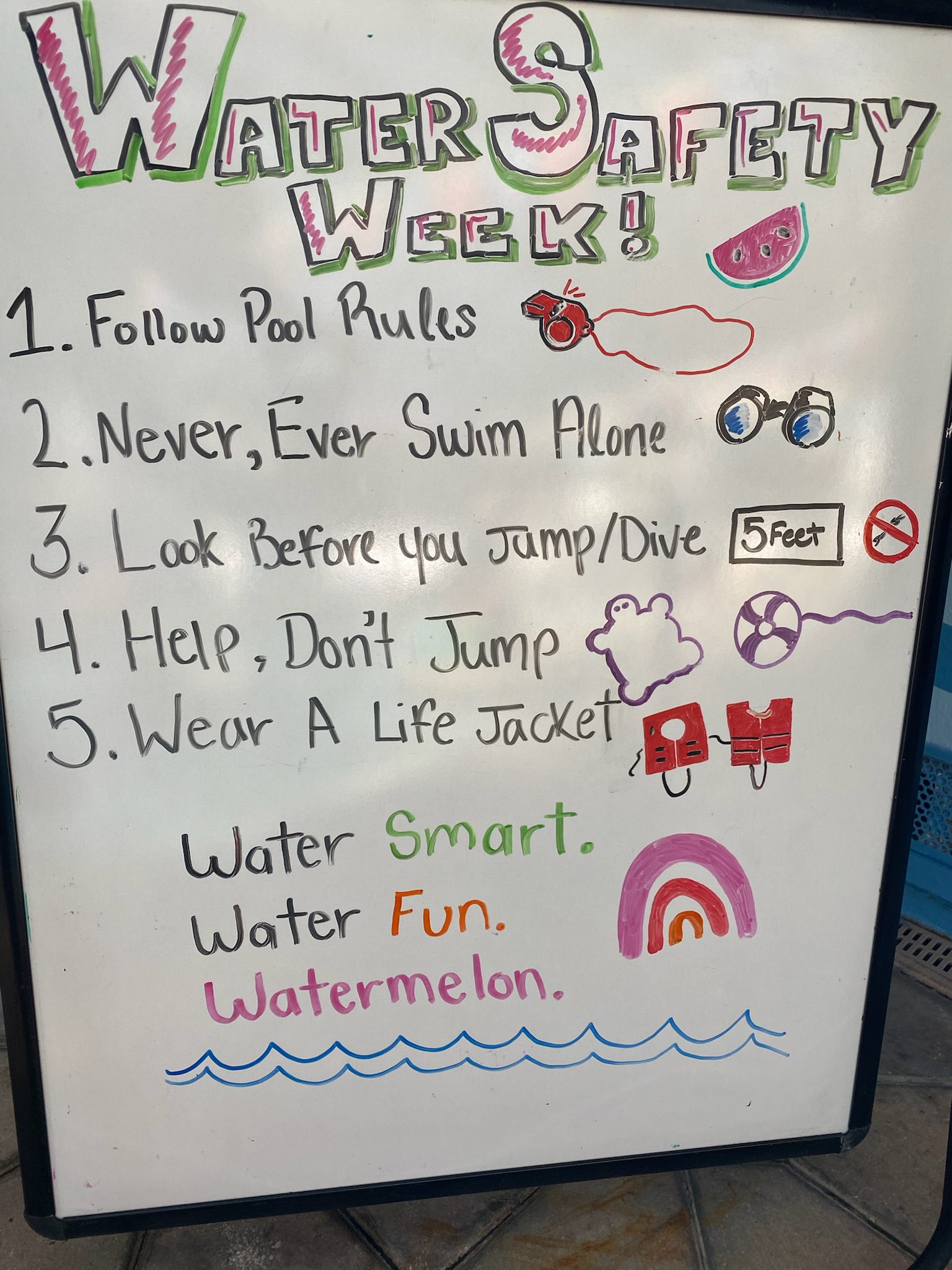No measure can ever guarantee that children are safe in, on, and around water. It is only human for adults to
sometimes lapse in their supervision of children in home or while out and about. Children can and do find ways over fences, and even those who had swimming lessons can still drown. For this reason, the SAFER swimming message promotes the application of various layers to protect children from drowning. If one layer “fails” then there is another behind it that may save their life. Layers of protection include:
-
swimming skills
-
adult supervision
-
fences and gates
-
emergency plan
-
reduce the risk
Flordia leads the country in drowning deaths of children ages 1-4
Be sure to talk throughout the year about water safety with your child. Show them where to find the pool rules, what they are, and how to follow them. Remind them that no child should ever swim alone, they always need an adult and to ask permission from the adult before going in. Sometimes there are things in the water like a stick, rock, or another person, so always look before they jump or dive. If your child ever sees someone that needs help, they should help but do not jump in. Show them things they can throw in the pool to help someone, they should yell for help or call 911. We should all wear a life jacket in a boat, canoe, or kayak and be sure to ask for permission before taking off.
Boys are more at risk, 80% of all drowning victims are boys
Some statistics we want you to know and share:
-
Did you know that swim lessons can reduce a child’s risk of drowning by 88%?
-
The safest place in the water is on your back floating so you can breath and call for help
-
A child can drown in less than 1 inch of water
-
Drowning is SILENT and takes less than 2 minutes
-
Never use flotation devices as a substitute for supervison
-
Drowning is the leading cause of death in children ages 1-4
-
Always stay within arm’s reach of young children and avoid distractions
African American and Hispanic nationalities account for more than 3 times as many drowning incidents


